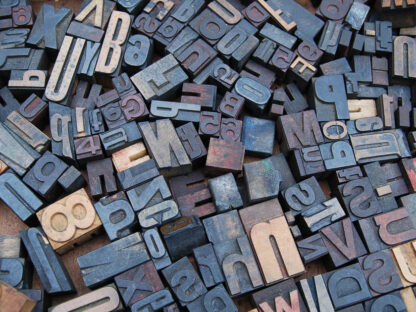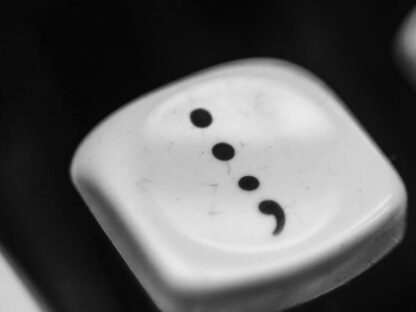Punctuation
Become a pro at punctuation! Enhance the clarity and flow of your writing by mastering the use of commas, semicolons, hyphens, parenthesis, ellipsis, quotation marks...and various other types of punctuation.
-

How to Use Commas with Coordinating Conjunctions
How to Use Commas with Coordinating Conjunctions
Published Mar 20, 2023
Last Updated Nov 28, 2024Coordinating conjunctions can be confusing for new proofreaders, especially when commas are involved. We’re here to make things clear for you with our guide to using commas with coordinating conjunctions. What Are Coordinating Conjunctions? Coordinating conjunctions are words that join words, phrases, or clauses together. We have seven coordinating conjunctions in English, which can be […]
-

11 Uncommon Punctuation Marks (and How to Use Them)
11 Uncommon Punctuation Marks (and How to Use Them)
Published Mar 13, 2023
Last Updated Jun 27, 2024There’s no doubt about it: punctuation is an integral part of writing. We use it to mark pauses, pose questions, emphasize certain ideas, and clarify meaning. You’ll already be familiar with the usual suspects – periods, commas, exclamation points, question marks, and so on – but did you know there are some weird and wonderful […]
-

What Is an Oxford Comma? (With Examples)
Published Dec 21, 2022
Last Updated Dec 15, 2023Commas can be a confusing part of punctuation, and the Oxford comma is no exception. In this post, we’ll explain what exactly an Oxford comma is and how you should deal with them as a proofreader. The Oxford Comma (AKA The Serial Comma) Commas are used to separate items in a list. An Oxford comma, […]
-

When to Use Possessive Apostrophes
Published Nov 13, 2022
Last Updated Mar 04, 2024Apostrophes are one of the most commonly misused forms of punctuation. As a proofreader or editor, you’ll need to catch apostrophe errors in your client’s work. There are two main uses of apostrophes: to indicate possession and to create a contraction. In this post, we’ll be focusing on the former. Read on to learn the […]
-

How to Use Semicolons (with Examples)
Published Oct 24, 2022
Last Updated Jul 28, 2025A semicolon (;) is a punctuation mark that indicates a pause, and it typically serves two purposes: linking two closely related independent clauses and separating items in a multipart list. But how are they different from colons? And when is a semicolon a better choice than a comma? As a proofreader, you’ll need to know […]
-

A Proofreader’s Guide to Exclamation Point Use
Published Jul 01, 2022
Last Updated Jun 29, 2024Exclamation points, also known as exclamation marks, are used to express excitement, enthusiasm, and other strong emotions. As a proofreader, though, you may need to help clients avoid overusing them or using exclamations in the wrong situation. So, when should exclamation points be used? And when should a proofreader step in to curb a client’s enthusiasm for […]
-

5 Tips on How to Write the Perfect Christmas Card
Published Dec 18, 2021
Last Updated Nov 26, 2024It’s that time of year again! Christmas is just around the corner, and you’ve got a lot to do – wrapping presents, buying food, writing Christmas cards… the list goes on. It would be easy to let your proofreading standards slip! But to help you avoid this, we’ve come up with five tips on writing […]
-

Proofreading Tips: Parentheses and Square Brackets in Chicago Style
Published Nov 07, 2021
Last Updated May 16, 2023Parentheses and square brackets are punctuation marks used to set off certain bits of information from the main text in a document. They’re not too tricky, but different style guides can have slightly different rules for their usage. And, as a proofreader, you’ll need to check your client’s writing against these rules. This post, then, […]
-

Proofreading Tips: What to Do With Scare Quotes
Proofreading Tips: What to Do With Scare Quotes
Published Oct 31, 2021
Last Updated May 16, 2023As a proofreader, what scares you the most? If scare quotes are the spookiest things you can think of, don’t worry. It might be Halloween, but there’s no reason to fear them! As long as you know what they are and when it’s appropriate to use them, you’ll know exactly what to do when they […]
-

A Proofreader’s Guide to Straight and Curly Quotes
A Proofreader’s Guide to Straight and Curly Quotes
Published Oct 28, 2021
Last Updated Feb 20, 2026Quotation marks may seem simple at first glance, but eagle-eyed proofreaders will know there’s more than one type to watch out for. In fact, quotation marks come in two distinct styles: straight and curly (or “smart”). In this post, we’ll explain: Let’s take a closer look. What’s the Difference Between Straight and Curly Quotes? The […]
